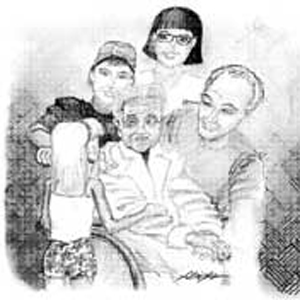
What Do I Say? Facing Challenges in Communication
DescriptionThis is a self-paced course with optional knowledge check quizzes after each lesson. These non-graded quizzes allow you to check your understanding of the lesson objectives before proceeding to the next lesson. After the final lesson you will be required to take the final exam. You must score 70% or higher to pass the course and obtain a certificate of completion.
- Describe the methods of communication.
- Define verbal and non-verbal communication.
- Describe the tools needed for effective and active listening.
- Identify the sensory losses that impair communication.
- Identify cultural or language barriers that influence effective communication.
- Identify emotional barriers to effective and accurate communication.
- Identify methods to create an environment that encourages good communication.
- Outline communication skills necessary for staff/volunteers.
- Identify the communication needs of the terminally ill.
- Compare and contrast the communication needs of the terminally ill patient and his or her family.
- Describe the paraprofessional/volunteer role in reporting discussions with and observations of the patient and family.
1.6 Contact Hour: Based on 60 minute contact hour
The estimated time for completion for this activity is 1.6 hour(s).
Health care professionals and volunteers to: include Registered Nurses, Licensed Practical Nurses, Social Workers, Physicians, Chaplains/Counselors, Home Healthaides, Certified Nursing Assistants, Homemakers, Volunteers, Therapists, and others interested in hospice services and information.
Lores Vlaminck - RN BSN MA Technical Nurse Consultant Lores Consulting
Lores received both her Bachelors of Science Degree in Nursing and her Master's in Nursing Education from Bethel University, St. Paul, MN. Lores has a varied background of healthcare experience to include acute and critical care, clinical nurse specialist, and most recently, 19 years of experience as the founder and director of a rural home care and hospice agency.
Lores' passion is education for health care professionals, para-professionals, volunteers, and the community at large in the specialty of end-of-life care. Lores offers seminars, training, orientation, coaching, presentations, compliance monitoring, and mentoring for home care, hospice agencies, and health care organizations.
Materials used in connection with this course may be subject to copyright protection. Retention of the materials for longer than the class term, unauthorized further dissemination of the materials, or use of copyrighted materials in any way other than intended for this class is prohibited by Copyright and Teach Act laws.
This course was developed with Rochester Community and Technical College's Continuing Education and Workforce Development Division located in Rochester Minnesota. Development was funded from the Minnesota State Colleges and Universities System.